About Us
Mission
The mission of RaeSedo, Inc is to generate and optimize new and improved structural peptidomimetics derived from active regions of SP-A in stable, inhaled forms that are as efficacious as endogenous SP-A in reducing inflammation in asthma and other lung diseases.
Our Team
RaeSedo, Inc was founded by a team of women-led physician-scientists that brings together experience in clinical trials, patient care, and translational basic science research.
Based on a decade’s worth of collaborative efforts, and continuous NIH funding, we have demonstrated that a previously unknown region of activity within surfactant protein A (SP-A), an endogenous lung protein with innate immune properties, is as efficacious as the full-length oligomeric SP-A in reducing airway inflammation associated with asthma.
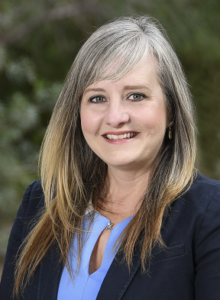
Julie Ledford, PhD
Chief Science Officer
Julie Ledford, PhD is the Chief Scientific Officer and an expert in the role of endogenous lung proteins and mechanisms through which they mediate various states of lung inflammation, pathogen infection and lung disease progression using pre-clinical animal models. She is an Associate Professor with tenure in the Department of Cellular and Molecular Medicine at the University of Arizona, serves as Associate Director for Translational Research within the Asthma and Airway Disease Research Center and is the Co-Director of the Clinical Translational Sciences Graduate Program for the University of Arizona Health Sciences. She also serves as co-director of the Lung Research Focus group (RGF2) within the Southwest Environmental Health Sciences Center and is a permanent member of the NIH Lung Cellular and Molecular Immunology study section. She has over a decade’s worth of experience mentoring and training medical students, graduate students, postdocs, and fellows and was the first-ever recipient of the Jo Rae Wright Award for Outstanding Science from the American Thoracic Society in 2012. Her translational research lab investigates obstructive lung disease and dysfunction of innate immunity in Asthma and respiratory infections. She has led pulmonary function tests with collaborators for the past 10 years and has a strong history of collaborations in the fields of respiratory diseases, lung function and asthma.
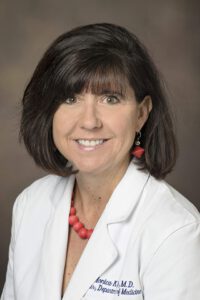
Monica Kraft, MD
Chief Medical Office
Monica Kraft, MD is the Chief Medical Officer and a well-known clinical and translational physician-scientist specializing in airway disease with over 200 publications in the areas of adult asthma, the role of infection in asthma and the role of the distal lung in asthma and airway remodeling. She served as the Chair of the Department of Medicine at the University of Arizona College of Medicine-Tucson, as well as a Professor of Medicine and a Robert and Irene Flinn Endowed Chair in Medicine. In July 2022, she moved to Icahn School of Medicine at Mount Sinai, where she is the Murray M. Rosenberg Professor of Medicine and System Chair, Samuel Bronfman Department of Medicine. Her laboratory personnel have moved as well, so RaeSedo, Inc. research will continue. Prior to joining the University of Arizona, she was the Charles Johnson Distinguished Professor of Medicine, Chief, Division of the Pulmonary, Allergy and Critical Care Medicine, and Director of the Duke Asthma, Allergy and Airway Center at Duke University Medical Center in Durham, North Carolina. She has been continuously funded by NIH for over 25 years and has received over $17M in funding for work in asthma over the last five years alone. She is a member of the Board of Extramural Advisors of the National Heart, Lung, and Blood Institute (NHLBI) and past president of the American Thoracic Society. She has been studying the impact and role of surfactant protein A in asthma for over a decade.

Jan Mark Creidenberg
Chief Executive Officer
Jan Mark Creidenberg is RaeSedo CEO and brings 35+ years of business leadership experience to the team. He is a dynamic, results-oriented business leader and marketing executive with experience in pharmaceuticals, medical devices, consumer brands and board roles. Jan has a proven track record as a cross-functional leader who establishes a culture of collaboration, trust, support and accountability, resulting in high performance teams that consistently deliver both top-line and bottom-line results. He has extensive experience as a cross-functional leader with sales, marketing, manufacturing, R&D, regulatory, quality, legal, finance, HR and other business partners. Jan is analytical, strategic and a creative problem solver with a global mindset. He has experience commercializing respiratory products (allergy and asthma) as well as products in broad range of other therapeutic areas in the U.S and globally. Jan also brings a decade of start-up and small company experience to the RaeSedo team, as well as private equity operating partner/board member experience.
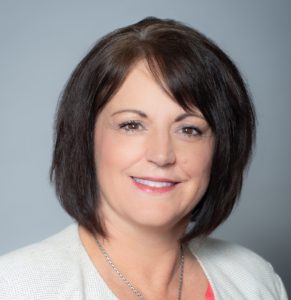
Jody Yarbrough, MBA
Chief Financial Officer
Jody Yarbrough is the Chief Financial Officer. Ms. Yarbrough is a finance and accounting professional with 25+ years’ experience in healthcare. As a consulting CFO, she supports private sector business helping solve their operational and financial business challenges. Her client portfolio is a diverse set of small businesses in a wide variety of industries. While Tucson is Ms. Yarbrough’s home base, she serves clients from coast to coast. She works with a number of life sciences start-ups, primarily in pharmaceutical research and development. Ms. Yarbrough is a subject matter expert supporting new start-ups at the University of Arizona Center for Innovation. She holds an MBA in Health Care Administration and is a licensed CPA in Arizona.
Co-Investigators

Scott Boitano, PhD
Co-investigator
Scott Boitano, PhD, co-investigator, University of Arizona. Dr. Boitano is a Professor of Physiology at the University of Arizona with extensive experience in airway physiology. He received his BA from UC Berkeley and his PhD in Genetics and Cell Biology from Washington State University. Dr. Boitano’s primary research interest is in airway epithelial cell signaling. This encompasses the analysis and observation of cell physiology, cell-cell communications, and cell-pathogen interactions. His laboratory has had longstanding research projects examining the conducting and respiratory epithelium focusing on asthma, chronic obstructive pulmonary disease (COPD) and other pathogen-mediated respiratory disorders. He has pioneered cellular models for studying defects in alveolar cell physiology that underlie specific airway conditions following disease, insult, and injury to the lung. For this proposal, he provides world-class expertise in airway physiology and cellular biology.
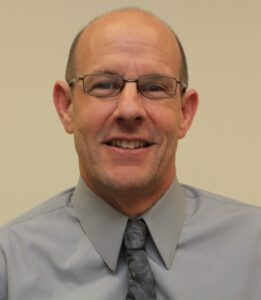
Josef Vagner, PhD
Co-investigator
Josef Vagner, PhD, co-investigator, University of Arizona. Dr. Vagner is a Research Professor at the University of Arizona’s Bio5 Collaborative Research Institute and the Director of the Ligand Discovery Laboratory. He is in an expert in the field of drug discovery and development, and he is focused on the design, synthesis, purification, characterization, and screening of compound arrays. He has published over 90 original manuscripts and holds 31 patents. He is a frequent presenter at national and international meetings such as the American Chemical Society and the American Peptide Society. He has over 25 years of experience in synthesis and structural analysis of de novo ligands for various biological targets, including a recent focus on SP-A peptidomimetics. These experiences include 10 years of work in the pharmaceutical industry (Sanofi/Selectide, Novo Nordisk and Discovery Partner International) where he specialized in combinatorial chemistry and array synthesis of drug-like molecules. He has also supervised teams of scientists who successfully accomplished the synthesis of more than 10 large libraries with > 10,0000 compounds each.
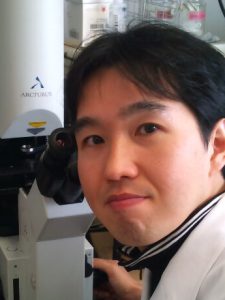
Hiroki Kimura, MD, PhD
Subrecipient Principal Investigator
Hiroki Kimura, MD, PhD, Subrecipient Principal Investigator, Mount Sinai. Dr. Kimura is an Assistant Professor of Medicine in the Department of Medicine, Icahn School of Medicine at Mount Sinai. He has been working in asthma for 14 years with a focus on mechanisms of inflammation and innate immunity. He has expertise in studies in epithelial cell biology with both in vitro and in vivo approaches (particular in the investigation on the gene-environment interaction, asthma pheno/endotypes with an approach using CRISPR/Cas9 genome editing technology) and is experienced in conducting preclinical studies through his participation in the development of novel drug delivery systems as well.
Consultants

Philip Kuehl, PhD
Consultant
Philip Kuehl, PhD is the Scientist and Head of the Scientific Core Laboratories, Lovelace Biomedical. The Scientific Core Laboratories are responsible for the formulation, chemistry, bioanalysis, aerosol engineering solutions, microbial analysis, and telemetry systems. Dr. Kuehl is an expert in formulation by all routes and is renowned for his contributions to pulmonary formulation and respiratory drug development. He has over 45 publications in drug development and formulation, is a managing member of the Inhalation and Nasal Technology Focus Group and ad hoc reviewer of numerous journals. Dr. Kuehl joined Lovelace in 2007.

Edward (Ted) Barrett, PhD
Consultant
Edward (Ted) Barrett, PhD has spent most of his career investigating the effects of small molecule, biologic, nucleic acid, and medical device technologies in various animal models of disease. His programs aim to translate nonclinical efficacy, pharmacokinetic, and pharmacodynamic data obtained from species ranging from rodents to nonhuman primates to the human clinical paradigm. Dr. Barrett joined Lovelace Lovelace Biomedical in 1999 and currently serves as Senior Director of Pharmacology.
Scientific Advisors

Serpil Erzurum, MD
Scientific Advisor
Serpil Erzurum, MD was named Chief Research and Academic Officer of Cleveland Clinic in 2020, representing an expansion of her prior role as Chair of the Lerner Research Institute, which she has held since 2016. In this role, Dr. Erzurum focuses on strategic growth of enterprise-wide medical and scientific education programs; clinical, basic, and translational research; and technology development to deliver the most innovative care to patients. She has significant experience translating clinical discovery to therapeutics in these roles at the system level. A practicing pulmonologist and active scientist, Dr. Erzurum holds the Alfred Lerner Memorial Chair in Innovative Biomedical Research. Her scientific contributions and leadership in pulmonary research have led to diagnostic and therapeutic advances in lung diseases and helped to identify human physiologic adaptive responses to high-altitude hypoxia. She has published more than 300 peer-reviewed articles and has been the principal investigator on more than 20 federal grants, including multi-investigator program project grants and network trials. She is also a Professor of Medicine at the Cleveland Clinic Lerner College of Medicine of Case Western Reserve University. Dr. Erzurum has earned numerous awards, including the prestigious MERIT award from the National Heart, Lung, and Blood Institute (NHLBI). She was elected to the National Academy of Medicine (NAM), American Society for Clinical Investigation (ASCI), and Association of American Physicians (AAP), where she served as president from 2017-2018. She has also served as chair of the Pulmonary Disease Board of the American Board of Internal Medicine (ABIM). Because of her work in advancing the careers of women in medicine and science, Dr. Erzurum was honored with the Elizabeth Rich Award from the American Thoracic Society.

Michael Beers, MD
Consultant
Dr. Michael F. Beers holds a joint appointment as Robert L Mayock and David A. Cooper Professor of Medicine in the Pulmonary and Critical Care Division and Senior Investigator at the PENN-CHOP Lung Biology Institute at the Perelman School of Medicine at the University of Pennsylvania. He received both his BA (Biophysics, 1981) and MD (1985) degrees from the University of Pennsylvania. His post-graduate training has included an Internship, Residency, and Pulmonary/Critical Care Fellowship at the Hospital of the University of Pennsylvania, and bench research training in Lung Biology at the Institute for Environmental Medicine at the University of Pennsylvania. In 1993 he joined the University of Pennsylvania faculty as a physician scientist in the Department of Medicine where he has developed a research program centered in basic and translational investigations in lung epithelial cell biology, surfactant biochemistry, and lung injury/repair. In addition to expertise in surfactant biology, Dr. Beers also has experience in IP and drug development. As such, he holds a US patent for “Surfactant Protein D is a Biomarker for Steroid Responsiveness in Asthma and Chronic Obstructive Pulmonary Disease”- which related to the identification of biomarker, the detection of which is prognostic for individuals who are responsive to inhalation of corticosteroids as a therapy for asthma and COPD. Additionally, he is PI of a U01 grant that studies Surfactant Protein C Mouse Models: A fit for purpose preclinical platform for advancing discovery in and treatment of idiopathic pulmonary fibrosis. His laboratory, which is funded by both the National Institutes of Health and the Department of Veterans Affairs, He received tenure in 2001 and most recently received a Senior Clinician Scientist Award from the Department of Veterans Affairs. He is Board certified in Internal Medicine, Pulmonary Medicine, and Critical Care Medicine.

Fernando D. Martinez, MD
Scientific Advisor
Fernando D. Martinez, MD is a Regents’ Professor and Director of the Asthma & Airway Disease Research Center at the University of Arizona Health Sciences in Tucson. Dr. Martinez is a world-renowned expert, and one of the most highly regarded researchers in the field of childhood asthma. His primary research interests are the natural history, genetics, and treatment of childhood asthma. His groundbreaking research has had an impact on his field in numerous ways, most prominent among them the development of the concept of the early origins of asthma and COPD. This concept is now widely accepted as the potential basis for the design of new strategies for the prevention of these devastating illnesses affecting millions of children and adults worldwide. In addition, Dr. Martinez has made important contributions to our understanding of the role of gene-environment interactions in the development of asthma and allergies. He has also been the principal investigator of one of the Clinical Centers that are part of the NHLBI Asthma Treatment Networks, which have contributed fundamental new evidence on which to base national guidelines for the treatment of the disease. Dr. Martinez has served on national scientific boards including the NHLBI National Advisory Council and the National Scientific Council on the Developing Child. He was a member of the National Asthma Education and Prevention Program that was responsible for the development of the Expert Panel Report: Guidelines for the Diagnosis and Management of Asthma in 1997 and its first revision in 2001. He also has been a member of the FDA Pulmonary-Allergy Drugs Advisory Committee and the Board of Extramural Advisors of the National Heart, Lung, and Blood Institute (NHLBI). Dr. Martinez’s research and vision are detailed in more than 250 original research papers and editorials, many in collaboration with investigators from all over the world.
